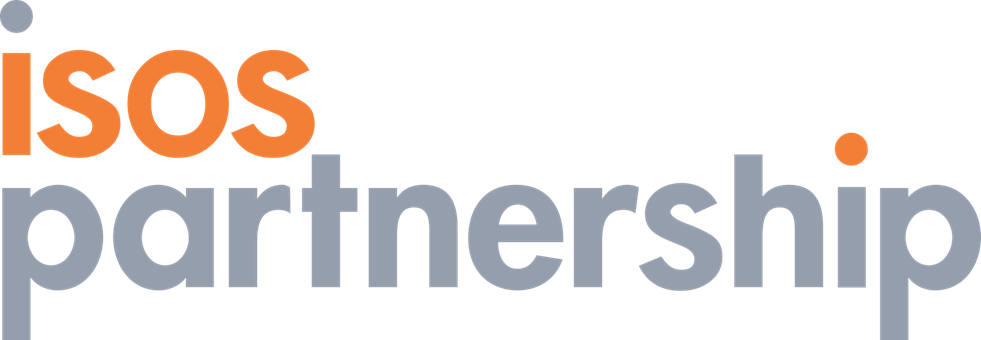Transforming a local authority’s support for school improvement: Seven lessons from Norfolk
In June 2013, Ofsted inspected Norfolk County Council's arrangements for supporting school improvement. They judged that these were not effective, and outlined a number of areas for improvement. Isos Partnership was commissioned to carry out a review of Norfolk's strategies, A good school for every Norfolk learner and Norfolk to good and great, to identify to identify how these could rapidly lead to improved outcomes. We undertook the review early in the autumn of 2013, and subsequently worked with Norfolk in the spring of 2014 to support them in evaluating their progress ahead of their re-inspection by Ofsted. The re-inspection, which took place in June 2014, found that Norfolk's arrangements for supporting school improvement are now effective.
Based on our work with Norfolk during the past year, we have identified seven key lessons for local authorities seeking to transform their support for school improvement.
1. Articulate a bold ambition, strong vision and clear strategy, underpinned by honest self-evaluation – the title of Norfolk's strategy, A good school for every Norfolk learner, captured their vision concisely and in a way that made their ambition explicit. Beneath the vision, the strategy set out an ambitious trajectory and a set of five connected steps for achieving this goal. Lastly, the strategy differentiated between groups of schools and the specific approach Norfolk planned to take. For each, there was a clear analysis of the problem, the schools they needed to work with, the approach they would take, and the expected impact. Crucially, the vision and strategy articulated schools' own role in their own improvement, and how the local authority would support them to do this effectively.
2. Engage school leaders in shaping the strategy and maintain the dialogue – Norfolk took a pro-active approach to engaging schools in the new strategy, in order to signal change, set out the offer of support and expectations to schools, and engage them as partners in the change process. A Norfolk head teacher with experience of turning around schools in difficulties was seconded to lead the Norfolk to good and great approach, which targeted schools judged to require improvement. Regular communications helped to build momentum and gather feedback.
3. Use data forensically to form an objective view of schools' performance – as Ofsted noted, 'the local authority's improvement strategy is based on the forensic use of accurate outcomes data to provide intensive support and challenge for schools.' The use of objective data and a published set of criteria supported a robust assessment of risk and performance in all schools, and subsequently the decision about the level of support and challenge required. For schools that were performing strongly, this began a dialogue about how they could support improvement in other schools. For the schools that were not yet good, Norfolk developed an electronic “report card” to gather data and track progress every six weeks.
4. Ensure rapid diagnosis of need and action – Norfolk developed mechanisms for brokering support swiftly for schools that the data showed required improvement, or for the rapid use of powers of intervention where necessary. Published protocols setting out when powers of intervention would be used was key to ensuring their consistent and timely use.
5. Segment and target groups of schools to build momentum – Norfolk prioritised schools that were "on the cusp of good" or where there was a clear-cut case for using their intervention powers. This was key to building momentum and demonstrating a new approach to supporting school improvement in action.
6. Build capacity through partnerships – Norfolk adopted a pro-active approach to building capacity within the county to support schools to improve. They set out the expectation, rather than the option, for good and outstanding schools to support other schools in Norfolk. They fostered partnerships with external organisations, such as the London Leadership Strategy, and teaching schools to develop system leadership capacity in Norfolk. They also established the Norfolk Education Challenge Board, with an independent chair in David Woods, to provide additional scrutiny and drive improvement.
7. Evaluate impact to drive further improvements – crucially, Norfolk recognised that they are at the beginning of a long-term change process. They are now developing new ways of evaluating impact – including using data in new and more iterative ways, gathering feedback from school leaders systematically, and undertaking in-depth evaluations of specific interventions in schools – to drive and embed sustained improvement in order to achieve a good school for every Norfolk learner.
What did Norfolk say?
‘Having secured local support, we wanted to establish the credibility of our renewed approach to supporting school improvement through a thorough process of external evaluation. We needed our new approach to be tested robustly so that it measured up to the best local authorities in the country in terms of supporting school improvement, understanding the distinct role of the LA and working with Ofsted. With a background in policy work, improvement and inspection, Isos Partnership was well placed to provide this challenge. Suitably experienced and skilful individuals quickly provided thought-provoking analysis and evaluation. This prompted further development that was followed by a deeper evaluation by Isos Partnership, a process that we plan to repeat over the year ahead.’
— Gordon Boyd, Assistant Director, Education, Norfolk County Council
